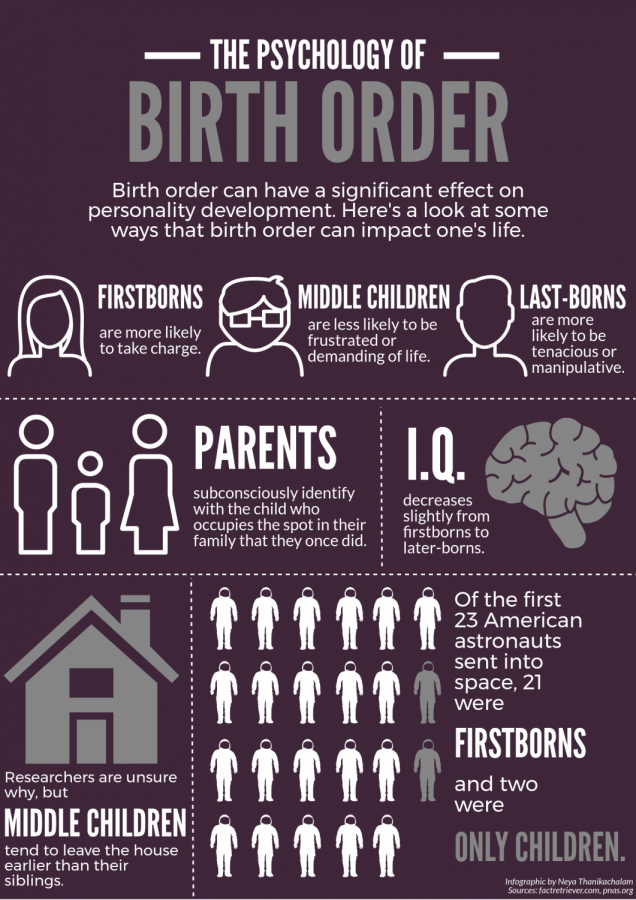Age matters: How birth order can shape personality
November 20, 2017
Oldest, middle, youngest or only? The effects of birth order are far reaching, contributing to intelligence, later success and personality. All of this stems from certain events and tendencies in the child’s early growth.
Cindy Tilt, psychology teacher at Naperville Central, is knowledgeable in the effects of birth order.
“The theory about [birth order] is that depending on your birth placement, your birth order, there seems to be a correlation between that and aspects of your personality,” Tilt said.
One of the ways birth order affects children is through parents’ attention, or lack thereof. Firstborns get used to their parents’ attention as a baby, and when this is taken away by the next in line, their personality is shaped around getting that attention back or coping with the loss. This usually leads to the oldest conforming to their parents’ wishes, but when this fails or doesn’t get them what they want, they tend to rebel.
The youngest cherishes the attention and lives in it, as they often attract the most attention from their parents. They also constantly want to be in the middle of everything. Middle children are more accustomed to splitting it, but this can lead to feeling forgotten. Only children are used to uninterrupted attention and tend to be self-centered.
A study by German psychologists Julia Rohrer, Boris Egloff and Stefan Schmukle analyzed the effects birth order has on intelligence and personality. In their study, “Examining the Effects of Birth Order On Personality,” they discovered a trend that intellect seems to decreases from oldest to youngest children.
The study reports that “the effect on intellect persisted after controlling for IQ scores, indicating that there is a genuine birth-order effect on intellect that goes beyond objectively measured intelligence and can be observed in adults.”
While the study claims this could be due to the mother’s age at which she gives birth, it is clear that birth order has some impact on intelligence. It is also theorized that this could be due to a “teacher-student” role between the older and younger sibling, with the older constantly teaching the younger in life.
So, it’s clear birth order has some effect on the child’s mind. Whether it be good or bad, these effects are rooted not in the children, but their surroundings.
“It’s very implicit, it’s not something they’re constantly thinking about,” Tilt said. “It’s something they witness, they observe […] Early on they probably took cues from the environment, from parent interaction, how their parents treated the other kids; so it happened more implicitly as opposed to having a real processing of it.”
Though birth order is not a new topic of discussion, all of the sources used here agreed that birth order is not a definitive science. None of this is for certain and although it makes sense, new results could prove otherwise.
Despite the uncertainties of the scientific study, birth order is a clear factor of personality and has an great impact on one’s life. It may have just as great an effect on psychological growth as gender. New information will be brought to the table about the clear effects of birth order, ranging from siblings’ levels of success to their outlooks on life, as developments are made in this emerging field.









Dustin • May 2, 2019 at 10:10 am
This is half correct on my personality
joe • Mar 1, 2023 at 1:58 pm
I agree chum